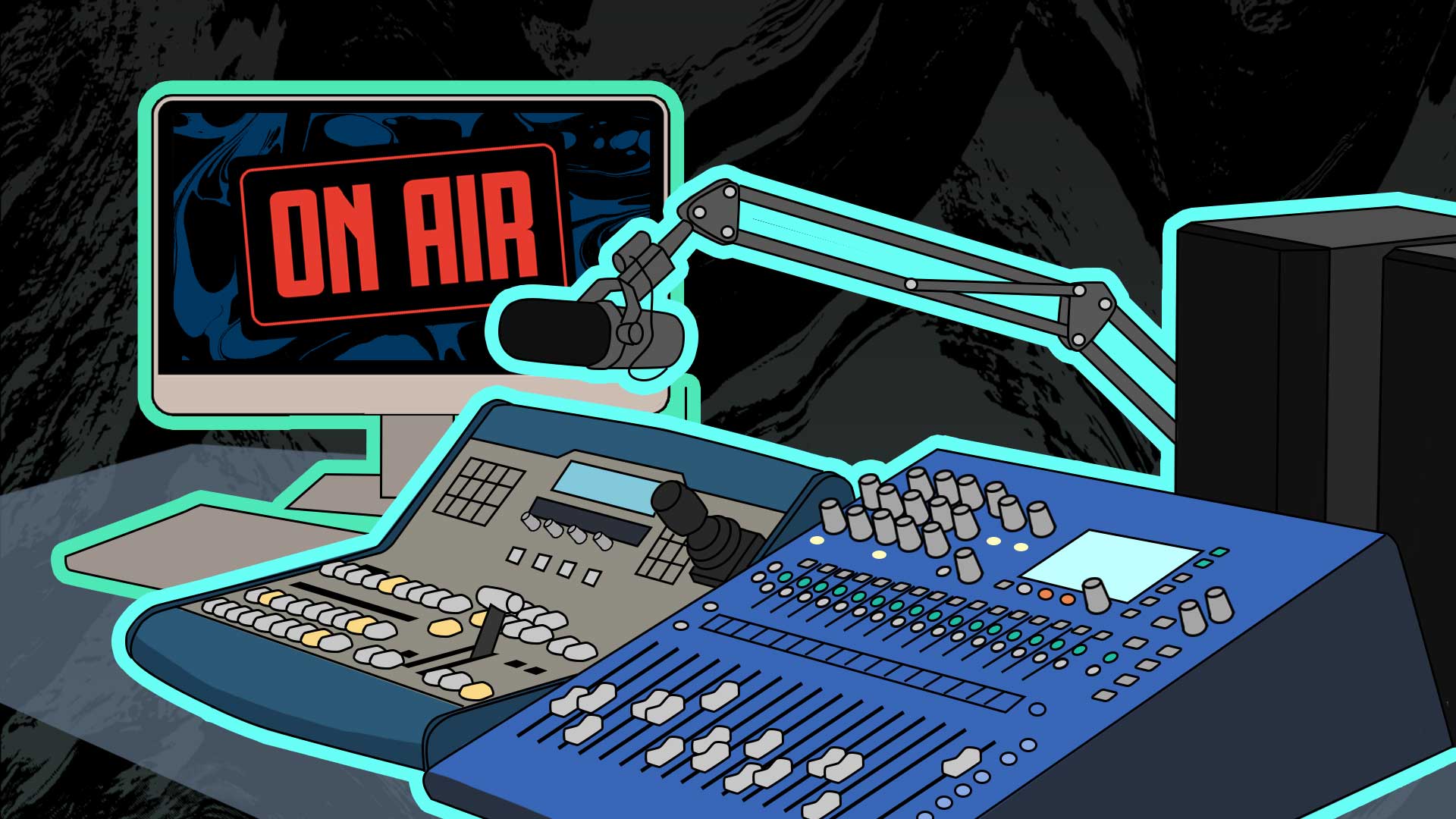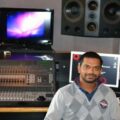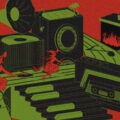Having fallen into the realm of audio work rather inadvertently, Jared Hillel now considers radio his full-time career and passion. What started as a whim – and a desire to be paid to chat – has led him to a job on CBC’s Toronto-based Ontario Morning as associate producer, technician, show director, weather man, producer of a weekly music column, and author of several radio pieces.
The multi-hyphenate sat down with RAC to talk radio – from his favourite parts of the job to things he wishes he’d known when starting out. We connected over Zoom as he joined us from the Toronto studio between shows.
Thank you for taking the time, Mr. Hillel!
“Thank you for having me.”
Can you tell us a bit about your background and where you got started before working at the CBC?
“I started doing radio during my semester abroad in Rome, which I found was something I genuinely enjoyed. Then, later on, when I graduated from university in 2019 and was looking for work, I got a job as a program director for a small radio station in rural Cape Breton. Since it was a small scale operation, this meant I could do everything; I produced my own radio show, helped produce others, I would do the tech, and hosted my own show.” His eyes glaze over as he adds, “It was a town of 3000 people and I found living there difficult – I was very lonely. But,” a lightness returns to his gaze, “I really loved working on the radio. I realized it was what I wanted to do more long term. I started applying for jobs, and got hired as a tech by a Radio Canada [CBC] show in Windsor, Ontario. That was in 2020, and I’ve worked in various roles for the CBC since then.”
What is your day to day like?
“I wake up around four in the morning and head straight to the office. The first two hours, I put on the finishing touches and prepare for the broadcast: getting the lineup, preparing all the scripts, getting the songs in order, and testing the equipment to make sure it all works. At 6 a.m., the show starts. I do the weather and occasional radio pieces on air. A quintessential part of the day, for me, is banter with the host. While the show airs, I operate the soundboard, play all the clips, play all the songs, connect the guests, and I’m adjusting the sound levels. Essentially, I’m in charge of the technical production of the show. After the show, my shift is split into two. I either help with the pre-tapes, or I work on radio pieces for the next day.”
What piece of career advice would you offer someone interested in doing what you do?
“Say yes to any opportunity you have, even if that means going to work in Nova Scotia.” (RAC would like to note that this is Mr. Hillel’s personal gripe and not representative of our feelings toward the province of Nova Scotia.) “You have to be willing and open to moving – you can’t expect to just work in Toronto or Montreal to start. Then, I’d say, learn as many skills as possible. Whether you’re a good sound technician, a good writer, or have a good on-air presence – all of those can be beneficial in really getting your foot in the door. And also, I’d say you have to be ready to work odd hours because the reality of most radio shows is that they’re not your typical 9-5 workday.”
What are some favourite and least favourite parts of the job?
“My favourite part is that, as a tech, you often get to work on different shows. Just before this, I was finishing up some work for the Laugh Out Loud podcast. I’ve worked on French shows, English shows, morning and afternoon shows – all with different hosts. I’ve even teched for Toronto’s Metro Morning, which is the biggest radio show in the country. That’s probably one of the best parts – you can just try and experience so many different things. The worst part? If anything goes wrong… people blame you. There’s a lot of responsibility, and there’s a pressure that comes with live radio production, right? Yes, you can make a mistake – no one’s going to die,” he wisely observes, “but if you do make a mistake, it will show.”
What would you tell someone who is just starting out in the field?
“Be nice! Being pleasant to work with goes a long way.” He chuckles to confirm his lighthearted disposition and, perhaps to alleviate the gravity implied in his previous answer, adds, “Don’t be too hard on yourself. This is what they told me when I was starting out: it’s not open heart surgery – it’s just radio. You will make mistakes, everyone makes mistakes.”
We all know networking is important. Do you have any advice for people who may have difficulty with that aspect of the job?
“My advice would be to remember that people are very receptive to chatting.”
Chatting?
He clarifies, “People in this industry are very friendly. They understand the position you’re in, they themselves have been in that position. So reach out to people, shoot your shot. You have nothing to lose. People know what it’s like to be looking for your first job.”
Would you recommend, then, to reach out to anyone who works in your desired field?
“Yeah! Reach out to anybody whose job you think is interesting, whose type of job you’d want to do. Be honest and clear about your intentions, and about what you’re looking for. And be confident that people will get back to you because they’ve been in your shoes before and know what it’s like to be just starting out.”
Technical training aside, what kind of traits do best in this industry?
“Being chatty,” he doubles down, adding, “and also being curious. Being able to stay calm under pressure, and being able to work on a deadline.” He mentions, again, the importance of being pleasant to work with, “especially considering the unconventional hours we have to work at. Nobody wants to hang around someone who is eternally grouchy. Doubly so at 4 a.m.”

Do you have any upcoming projects?
“Yes! I am working on a radio piece about competitive eating. I talk about the history of the sport, and why people have been fascinated with it for so long. I speak to the best competitive eater in the country – not to brag! It just goes to show, though, the variety of the work I get to do. I get to do research for cultural pieces that I find interesting, and the pressure of live radio adds a degree of excitement that isn’t always found in your regular 9-5. I’m grateful to have found a field that allows me to not only hone my technical skills, but to meet new people and live new experiences every day.” And, most important of all, “I get to chat with people for a living.”
Written by Ari Mazur
Illustration by Yihong Guo






















